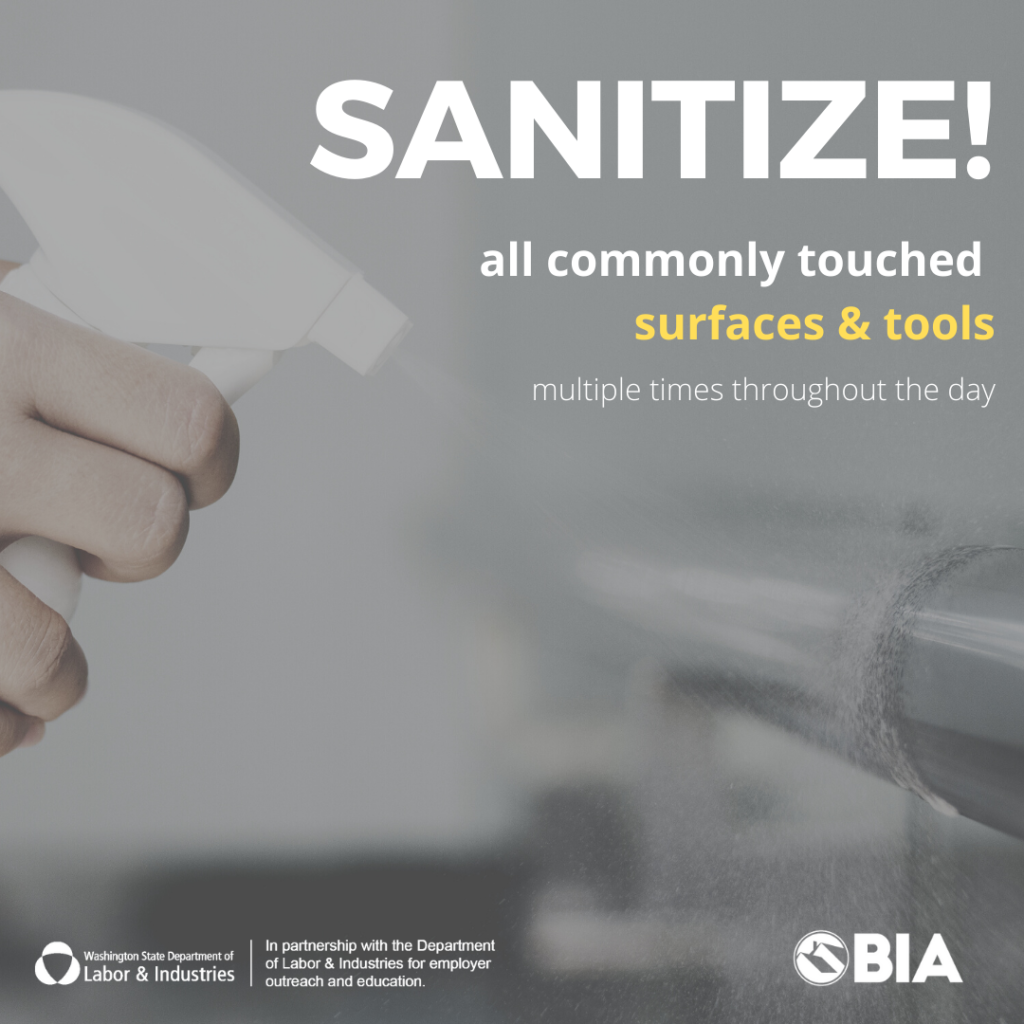Jobsite Culture is Key to Reducing Spread of COVID-19
 The BIA is committed to creating a diverse, equitable, inclusive, healthy, and safe jobsite culture. The COVID-19 pandemic has challenged our industry so much over the past 12 months but to keep building and remodeling homes we need to continue our efforts of embracing a healthy jobsite culture.
The BIA is committed to creating a diverse, equitable, inclusive, healthy, and safe jobsite culture. The COVID-19 pandemic has challenged our industry so much over the past 12 months but to keep building and remodeling homes we need to continue our efforts of embracing a healthy jobsite culture.
Weekly safety meetings (AKA toolbox talks) are effective in reminding our employees and subcontractors of the expectations we have of them. But that is not enough: we must institute measures that create accountability and reduce shame tied to missing work due to an illness.
Here are three opportunities to establish a safe and healthy culture on the jobsite:
1. Screen workers at the beginning of each workday.
Encourage daily temperature checks before workers begin work. These temperature checks can be conducted by the worker prior to traveling to work or can be done when they arrive at the jobsite so long as the thermometers used are ‘no contact.’ If no fever is reported (temperature of 100.4°F or higher), ensure you are asking if they have a cough, shortness of breath, fatigue, muscle aches, and/or new loss of taste or smell. If any symptoms or fever is reported, the worker should contact their medical provider for a diagnosis, instructions on quarantining and/or taking a COVID-19 test.
PRO TIP: Many testing facilities are available in Southwest Washington now, with or without doctor referral. Find a facility here.
2. Policies are effective.
Embrace policies that encourage workers to stay home or leave the jobsite when feeling sick or when they have been in contact with a confirmed positive case of COVID-19. Swift action is important in diminishing the spread of virus and a quarantine should be supported if testing is unavailable, or if the employee is awaiting test results. Under no circumstances should the worker return to work until they have been evaluated by a healthcare provider and/or have received a negative test result.
If the employee does have a confirmed case of COVID-19, employers should inform other employees of their possible exposure to COVID-19 but maintain confidentiality as required by the Americans with Disabilities Act (ADA). Any compromises of confidentiality could open you up to litigation.
3. Take COVID seriously.
We would be doing a disservice if we didn’t recognize that some people do not take COVID as seriously as others. While everyone is entitled to opinions, the workplace is not the environment for such discussions. As an employer, you should model the behavior you expect to see on the jobsite. As it relates to COVID, take the virus seriously. More than 4,000 Washingtonians have died from the virus (or complications caused by the virus) and our ability to keep working rests upon the responsibility of individuals doing their part to reduce the spread.
You can help your workers do their part by establishing a zero-tolerance policy stating if an employee fails to comply with any of the COVID guidelines, they will be sent home. For instance, if an employee refuses to wear the appropriate face covering, they would be sent home.
Did you know: This doesn’t just minimize the risk of spreading the virus, it also protects you as an employer and business? Failing to comply (or having your employees fail at complying) with COVID-19 Guidelines can open your company up to citations and fines upwards of $10,000.
